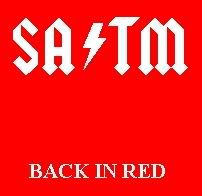I'm glad the OP has raised this issue but I didn't find the poll questions were very useful for representing my approach. So, instead, I'll answer in long form:
But, of course, the host of an event ultimately chooses his guests.
I don't know what "powers" are in this context but, in my view, the GM is the host of a game. So his responsibilities are those of a good host: coordinating people to create a good social experience for everyone, finding a venue and inviting people.Responsibilities and powers begin and end with the running of actual sessions.
A GM can't run something well if he's not inspired to run it. And, if you have a game in which discovery is an important play payoff, it makes no sense to decentralize control of house rules. Rules are part of the cosmology and metaplot of a campaign world. Unless you're running a Ron Edwards narrativist-style game (in which discovery can never be a payoff), it seems like a really bad idea to decentralize any component of this to the players. But obviously, in a narrativist social contract, such decentralization isn't merely a good idea. It's a requirement.Primary (but not absolute) power to establish houserules and genre choices.
I vote for option (a). Even in a discovery-based game it is both possible and adviseable to establish these things from the outset. Of course, the players may discover in the course of play something about the genre or rules that has been there all along that they simply haven't noticed. But, in my book, that's different than changing these things on the fly.(a)Absolute power over houserules, genre choices etc but only in advance.
(b)Absolute power to establish and change any aspect of the game before or during play.
The host of an event ultimately sets the schedule because, if he can't come, the event doesn't happen.Final say on scheduling.
I don't look at it that way. A GM communicates to players the kind of game he wants to run. The people who want to be in that kind of game join. SOmetimes this communication is ineffective and the GM fails, whether his fault or not, to communicate this effectively to the players; as a result, some group composition adjustments happen after the game starts.Final say on group membership.
But, of course, the host of an event ultimately chooses his guests.
Again, if host role=GM, this is true.Final say on social aspects (table rules, eating, smoking, etc)
Obviously, a GM should seek a group compatible with his schedule, circle of friends and social standards. To do otherwise is foolish in the extreme.Generally equal say on scheduling, membership and social aspects with the rest of the Group.



